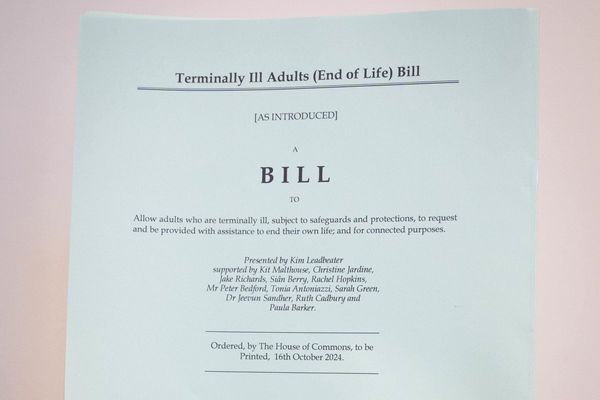Average house prices in Scotland are flattening at the same time some property types have not yet peaked.
That's according to Scottish estate agency DJ Alexander, pointing out that the Land Registry figures showed that some geographic areas and property types are still showing substantial price increases and achieving record levels.
Edinburgh, Glasgow, and Dundee all had average price increases over the year - rising by 5.9%, 5.3%, and 4.1% respectively - whereas Aberdeen experienced a fall of 2.7% in the last 12 months.
The worst performing property type is flats, which were on average 0.7% lower across Scotland at the end of 2022, compared to the beginning of the year.
However, in Edinburgh, Glasgow and Dundee, average flat prices are still higher than a year ago at 3.6%, 3.4%, and 1.3% respectively, with Aberdeen falling 5.6%.
However, it is in the detached house sector that prices remain extremely strong.
In Edinburgh and Glasgow, the highest ever average prices were recorded in December and the prices have risen steadily throughout the year.
The average price of a detached home in Edinburgh reached its highest level of £781,059 at the end of last year - an 11.5% increase over the year - while Glasgow’s detached homes also reached their highest ever level of £485,452 at the end of 2022 - an 11.7% increase in the 12-month period.
David Alexander, the chief executive of DJ Alexander Scotland, said: “There can be a tendency to assume that the housing market is a homogenous, uniform entity with all parts responding to economic difficulties in an identical way.
“These figures show that while the overall picture is of a housing sector where prices are flattening and will probably fall in most areas, for some parts of the market this is still something of a boom time.”
He continued: “Any downturn and subsequent recovery in the housing market is determined by many unique factors which will impact the strength and ability of each area and each micro market to recover.
“Equally, the popularity of Scotland’s two largest cities - and also increasingly Dundee - is so great that property remains in demand resulting in higher prices across property types, despite the external financial factors impacting on the wider market as a whole.
“That doesn’t mean that these areas or these property types are immune from any market downturn, but it does seem to indicate that, at the moment, they are less likely to be negatively impacted upon than many other geographic areas and parts of the sector.”
Meanwhile, another residential property expert believes buyers and sellers can seize the positives of a more balanced market.
With properties in Edinburgh and the Lothians now selling closer to their home report value than previously, costs appear to be balancing out.
Maurice Allan, managing director of residential property at solicitors and estate agents Lindsays, said: “In some areas of Edinburgh, it hasn’t been uncommon for people to pay upwards of 10% above valuation in the past couple of years.
“Currently though, while every purchase is different, that premium is likely to be more modest.”
Paul Hilton, chief executive of property portal ESPC, explained that there is strong competition for properties in Edinburgh, the Lothians, Fife and the Borders, with 80.7% of properties selling for their Home Report valuation or higher.
“There has been continued interest in areas such as Leith, Corstorphine and Blackhall, which are popular with young families and professionals who want homes with more space and good transport links to the city centre.
“The spring market is expected to be busy and there are promising signs that the market is currently continuing to outperform the pre-pandemic levels and other parts of the UK.”
First-time buyers are increasingly not having to find as much of their own money to fund an offer over the home report valuation, as has been the case in recent years.
Allan added: “Although your repayment interest rate may be, say, 5% instead of 2.5%, you’re probably borrowing less overall and you no longer need to find the same amount of cash to fund a purchase in excess of the home report valuation.
“It’s that premium that first-time buyers struggle to find - they may be borrowing 90% of the valuation, but anything they pay above that figure they have to find themselves.”
While interest rates have risen since last year’s mini-budget, the first mortgage deals under 4% interest have started to return to the market.
In the latest UK House Price Index statistics for Scotland, the average price of a home in Edinburgh increased by 5.9% year-on-year during November to £334,113.
That compared to a Scottish average property price of £191,492 - a 5.5% increase on the year.
The monthly average price change of a property across Scotland was also down by 1.2%.
Don't miss the latest headlines with our twice-daily newsletter - sign up here for free.







